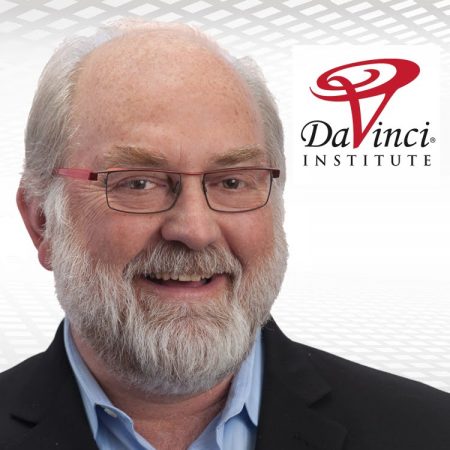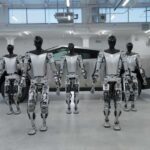August 24, 2016 – The headline of this posting is the title of Thomas Frey’s new book describing his vision of our unfolding future. Frey is one of a growing group of individuals who have dedicated themselves to observing the past and present and projecting with reasonable accuracy what is likely to unfold in years to come. He describes his revelations as epiphanies, grand ideas that lead to perspectives on our future.
Epiphanies aren’t unique to Frey. He writes that billions of them occur every day. We see their end results in new products, films, books, software apps and science discoveries. Eureka moments are what make humans such an interesting species, constantly moving forward, letting our fertile mind drive us to new direction.
Frey frets about the many times in our human past when we have allowed eureka moments to vanish because we failed to act on vision. He states, “every grand problem humanity faces today has been solved a million times over inside the minds of people unprepared to move them forward.” Frey hypothesizes, however, that in our digital age we have a distinct advantage. Where advancements in the past worked on doubling per decade timescales, today we follow an accelerating curve with advancements doubling in increments of two years. That means over a decade a 32-times factor in advancements as opposed to a mere factor of two. This scale of advancement, states, Frey, can be applied to any industry undergoing digital transformation. It can apply to cities as they become “smart.” And, states Frey, it can apply to his epiphanies, something he calls Epiphany Z, a framework for achieving the future.
Frey thinks of the future as a “definable force.” He believes we can prepare, define and design it. He has established a set of 12 laws that govern it.
- The future is a force.
- The future is defined by a “field of knowability.”
- The future is different for each of us.
- The future is non-existent until we pass the “field of knowability.”
- The future is subject to personal inertia.
- The future lies within predictable probabilities.
- The future can be defined with or without humanity.
- We have no control over the future but we can influence it.
- “Thinking about the future will cause it to change.”
- The future is filled with power and energy.
- When thinking about the future we can harness its power and energy to interact with it.
- The future’s “unknowability” drives us to invent it.
If this all sounds like mystery meat you have to read on to see how the remaining epiphanies unfold.
Frey covers optimizing purpose. He asks ten questions that neither science nor religion can answer. Then he goes on to outline the forces driving the world around us and how we interact with them.
His next epiphany focuses on optimizing learning. In this section of the book he speculates on what future learning will be fueled by the explosion of knowledge and knowledge gathering presented by the Internet and the sensate automata world connected to it. Frey describes an age of learning standing before us where degrees no longer apply, where learning tools are ubiquitous, and where education is a lifetime pursuit, of “preparing our minds for thoughts unthinkable and preparing our resolve for struggles unimaginable.”
In his exploration of optimizing out tools Frey talks about robots and jobs. He describes the robot taking our jobs scenario as a myth, that for every automated process we gain efficiencies as human beings as well as new jobs to meet new purposes. These include inventing new medical cures, developing better mitigation methods to deal with disasters, solving deviant behaviour, colonizing space and other planets, ending poverty, and overall extending our human capabilities. Yes automated vehicles will kill taxi and limo drivers jobs and meter maids. Drones will replace delivery services. 3D printing and contour crafting will disrupt manufacturing and construction. Big data plus artificial intelligence will impact doctors, financial planners, lawyers and even writers like me. These are just some of the examples he gives of disruptive impacts but with each displacement comes the opportunity to begin anew.
In his epiphany about optimizing systems he talks about knowing the past, finding value in it, and preserving its legacy. He talks about generational knowledge as a means to get organized. From there he moves on to a discussion on our legacy sense of time. Frey proposes the rethinking of our 24 hour day as an assist to regulating and leveraging the future. Frey believes our future lies in global systems. After all we are already subject to them from GPS location systems to the Internet, social networks, universal search and other technological advances. To these Frey adds the possibility of global accounting standards. Think blockchain. And global currency. Think bitcoin. And global patent, ethics standards, genealogy, ocean authority, air authority and more.
In tackling optimizing government, Frey’s epiphany begins with the understanding that governments are antique players on the world stage. They are slow to change and move at a snail’s pace. But the future is driving us to global mandates with national governments less meaningful as we tackle planet-wide challenges. Today we already see the impact of global systems on governments. The Internet alone with social media transcends borders and creates causes around issues supported by hundreds of millions of people from multiple countries. Our future through the Internet is one where the empowerment of people will shape society in new ways. Frey talks about the potential for prisons to become illegal, where society will automate monitoring of deviant behaviour, its correction, punishment if recidivism occurs, and even “brain wipes” in extreme cases. He talks about a future where we create a social operating system for our planet, one that replaces the millions of laws we currently have to negotiate in dealing with government and authority. It is a world where digital awareness will force governments to rethink everything or disappear.
In his chapter on optimizing infrastructure, Frey’s epiphany is all about engaging in disruptive technologies rather than attempting to correct age-old systems. Here are some examples. Instead of restoring rail systems he proposes building the hyperloops that Elon Musk proposes, and maglev systems like those in Japan and China. Instead of desalination he looks at technologies to draw freshwater directly from the air. Instead of university campuses he proposes micro colleges that focus on hot skill needs and in short lead-time create people qualified to meet industry demands. Instead of ground-based power stations he talks about putting them in space. The hyperloop alone, if developed, could employ 100 million of us over a 50-year span.
Frey tackles optimizing ourselves looking at the exponential increase in our own personal value. he states “our lives will never be about who we are today, but who we have the potential to become.” He asks the question, “how much is brain power worth?” He also poses the issue of our future immortality asking if death can become an option rather than a certainty. If humans have no end how will that change our sense of purpose, our drive, our ambitions? Frey states, “our generation may well be the last where death is not optional.”
In his statement of the ultimate epiphany, Frey describes eight critical skills we individual humans need to master to excel in the future. These include:
- communication management
- reputation management
- privacy management
- information management
- opportunity management
- technology management
- relationship management
- legacy management
These are very human and personal behavioral and functional skills that we recognize today as a challenge for many young people. But mastering them all will pay huge dividends in achieving positive future outcomes.
Through mastery of these skills we will be able to tackle the future, rethinking cities and our civilized infrastructure, moving off world, overcoming the forces of nature, reaching the speed of light, time travel, or even traveling to the centre of the Earth and controlling a fundamental force called gravity. This is our human promise if we embrace knowability and tackle the unknowable.
Frey ends with a new prime directive for our species and the challenges awaiting us:
“Preparing humanity for worlds unknown, preparing our minds for thoughts unthinkable, and preparing our resolve for struggles unimaginable.”

















